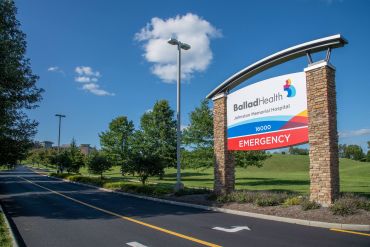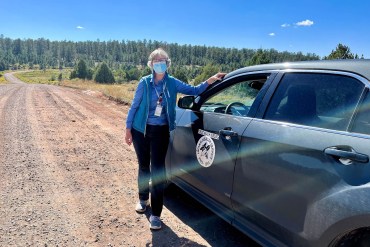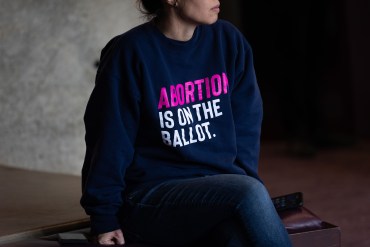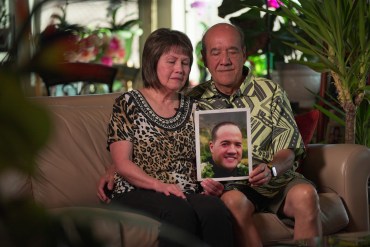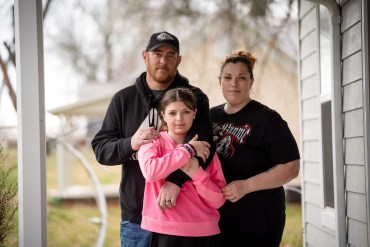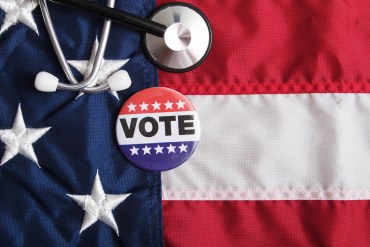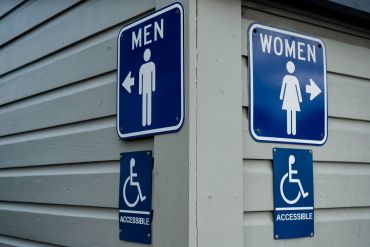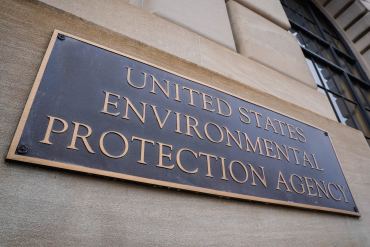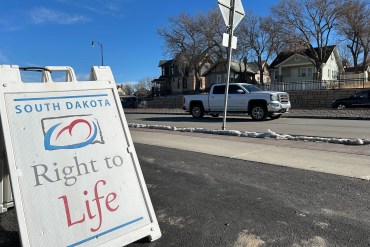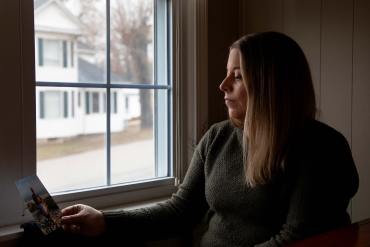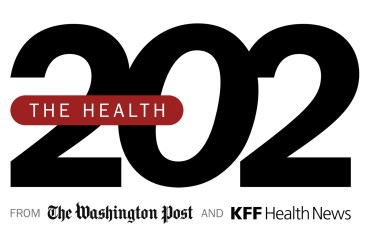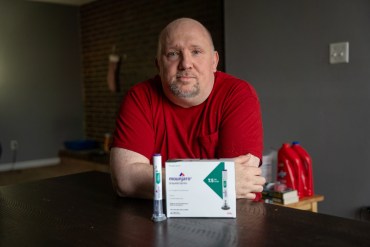Adultos mayores, agotados por tener que organizar tanta atención médica
Un nuevo estudio revela que los pacientes de Medicare dedican aproximadamente tres semanas al año a hacerse pruebas médicas, ver a doctores, someterse a tratamientos o procedimientos médicos, o pasar tiempo en el hospital o en centros de rehabilitación.
After Appalachian Hospitals Merged Into a Monopoly, Their ERs Slowed to a Crawl
Ballad Health was granted the nation’s largest state-sanctioned hospital monopoly in 2018. Since then, its emergency rooms have become more than three times as slow.
Rapid Rise in Syphilis Hits Native Americans Hardest
With U.S. syphilis rates climbing to the worst level in seven decades, public health experts and the federal Indian Health Service are scrambling to detect and treat the disease in Native American communities, where babies are infected at a higher rate than in any other demographic.
As money flows to abortion rights initiatives in states, some donors focus on where anger over the “Dobbs” ruling could propel voter turnout and spur Democratic victories up and down the ballot, including in key Senate races and the White House.
As More States Target Disavowed ‘Excited Delirium’ Diagnosis, Police Groups Push Back
After California passed the first law in the nation to limit the disavowed term “excited delirium,” bills in other states are being introduced to help end use of the diagnosis. But momentum is being met with resistance from law enforcement and first responder groups, who cite free speech.
They Were Injured at the Super Bowl Parade. A Month Later, They Feel Forgotten.
In the first of our series “The Injured,” a Kansas family remembers Valentine’s Day as the beginning of panic attacks, life-altering trauma, and waking to nightmares of gunfire. Thrown into the spotlight by the shootings, they wonder how they will recover.
Concerns Grow Over Quality of Care as Investor Groups Buy Not-for-Profit Nursing Homes
For-profit groups own more than 70% of U.S. nursing homes. Industry leaders and researchers wonder whether corporations and investors can succeed where not-for-profit organizations have struggled. Or, will quality of care suffer in the name of making money?
Whistleblower Accuses Aledade, Largest US Independent Primary Care Network, of Medicare Fraud
A recently unsealed lawsuit alleges Aledade Inc. developed billing software that boosted revenues by making patients appear sicker than they were.
America Worries About Health Costs — And Voters Want to Hear From Biden and Republicans
The presidential election is likely to turn on the simple question of whether Americans want Donald Trump back in the White House. But health care tops the list of household financial worries for adults from both parties.
Bathroom Bills Are Back — Broader and Stricter — In Several States
State lawmakers are resurrecting and expanding efforts to prohibit transgender people from using public restrooms and other spaces that match their gender. Some have sought to ban trans people from “sex-designated spaces,” including domestic violence shelters and crisis centers, which experts say could violate anti-discrimination laws and jeopardize federal funding.
Toxic Gas That Sterilizes Medical Devices Prompts Safety Rule Update
The Environmental Protection Agency is tightening regulation of ethylene oxide, a carcinogenic gas used to sterilize medical devices. The agency is trying to balance the interests of the health care industry supply chain with those of communities where the gas creates airborne health risks.
A Government Video Would Explain When Abortion Is Legal in South Dakota
South Dakota allows doctors to terminate a pregnancy only if a patient’s life is in jeopardy. Lawmakers say a government-created video would clarify what that exception actually means.
Without Medicare Part B’s Shield, Patient’s Family Owes $81,000 for a Single Air-Ambulance Flight
Sky-high bills from air-ambulance providers have sparked complaints and federal action in recent years. But a rural Tennessee resident fell through the cracks of billing protections — and a single helicopter ride could cost much of her estate’s value.
The Powerful Constraints on Medical Care in Catholic Hospitals Across America
The expansion of Catholic hospitals nationwide leaves patients at the mercy of the church’s religious directives, which are often at odds with accepted medical standards.
States Get in on the Prior Authorization Crackdown
Last month, my colleague Lauren Sausser told you about the Biden administration’s crackdown on insurance plans’ prior authorization policies, with new rules for certain health plans participating in federal programs such as Medicare Advantage or the Affordable Care Act marketplace. States are getting in on the action, too. Prior authorization, sometimes called pre-certification, requires patients […]
Early Detection May Help Kentucky Tamp Down Its Lung Cancer Crisis
After a decade of work, a Kentucky program launched to diagnose lung cancer earlier is beginning to change the prognosis for residents by catching tumors when they’re more treatable.
States Target Health Insurers’ ‘Prior Authorization’ Red Tape
Doctors, patients, and hospitals have railed for years about the prior authorization processes that health insurers use to decide whether they’ll pay for patients’ drugs or medical procedures. The Biden administration announced a crackdown in January, but some state lawmakers are looking to go further.
Possibility of Wildlife-to-Human Crossover Heightens Concern About Chronic Wasting Disease
A response is ramping up to a potential spillover of the neurological disease to humans from deer, elk, and other animals.
Native American Communities Have the Highest Suicide Rates, Yet Interventions Are Scarce
Native Americans die by suicide at a higher rate than any other racial or ethnic group, yet research into effective and culturally appropriate interventions is uncommon.
The Colonoscopies Were Free. But the ‘Surgical Trays’ Came With $600 Price Tags.
Health providers may bill however they choose — including in ways that could leave patients with unexpected bills for “free” care. Routine preventive care saddled an Illinois couple with his-and-her bills for “surgical trays.”




